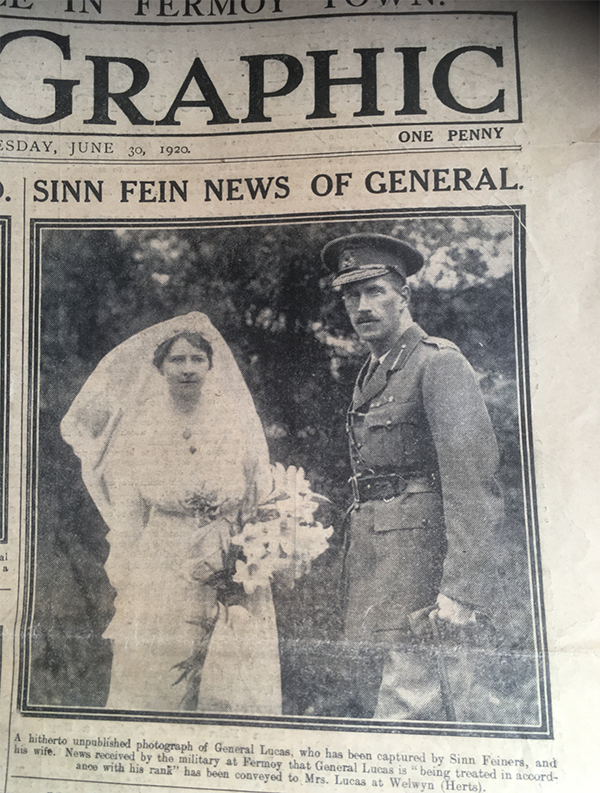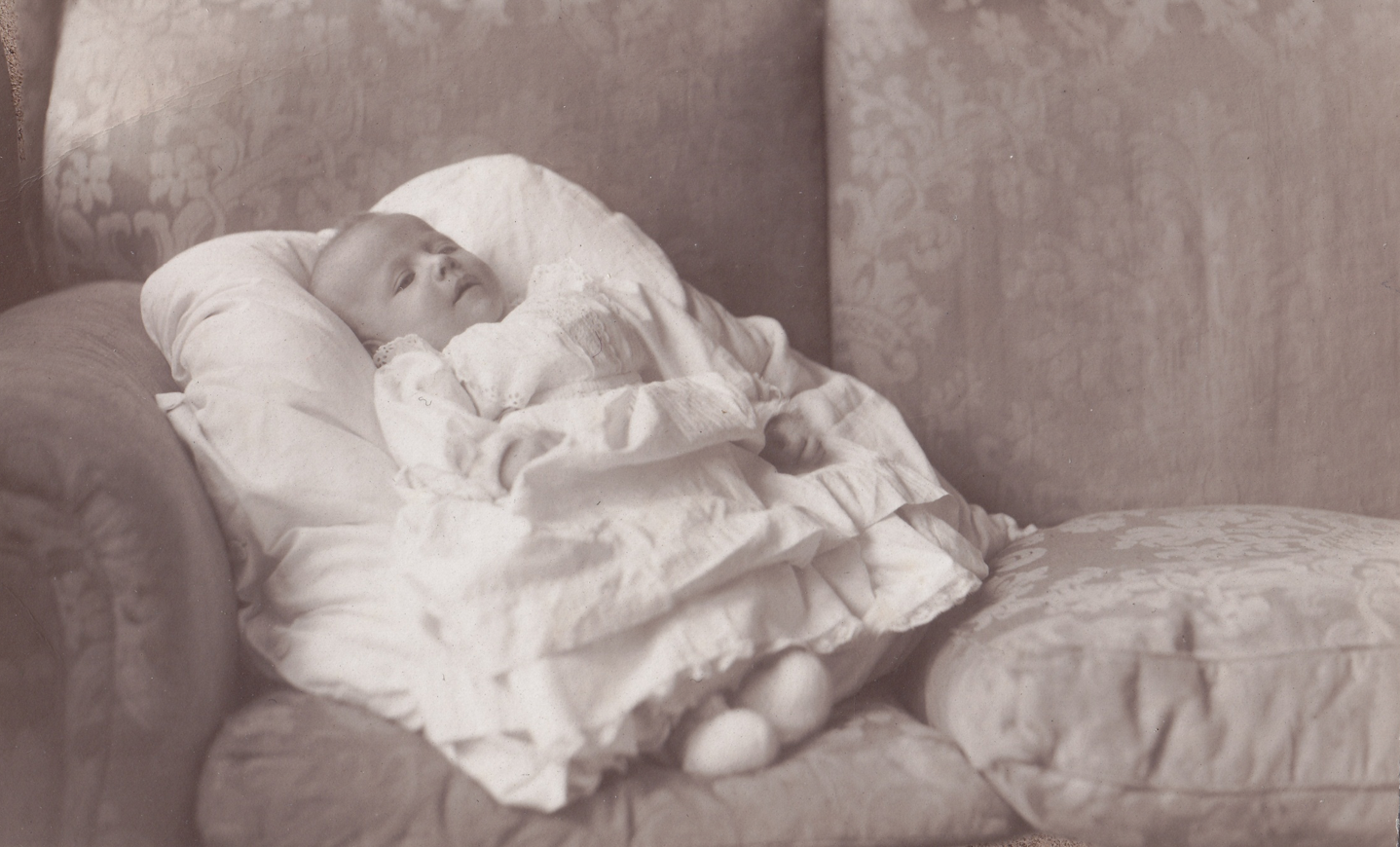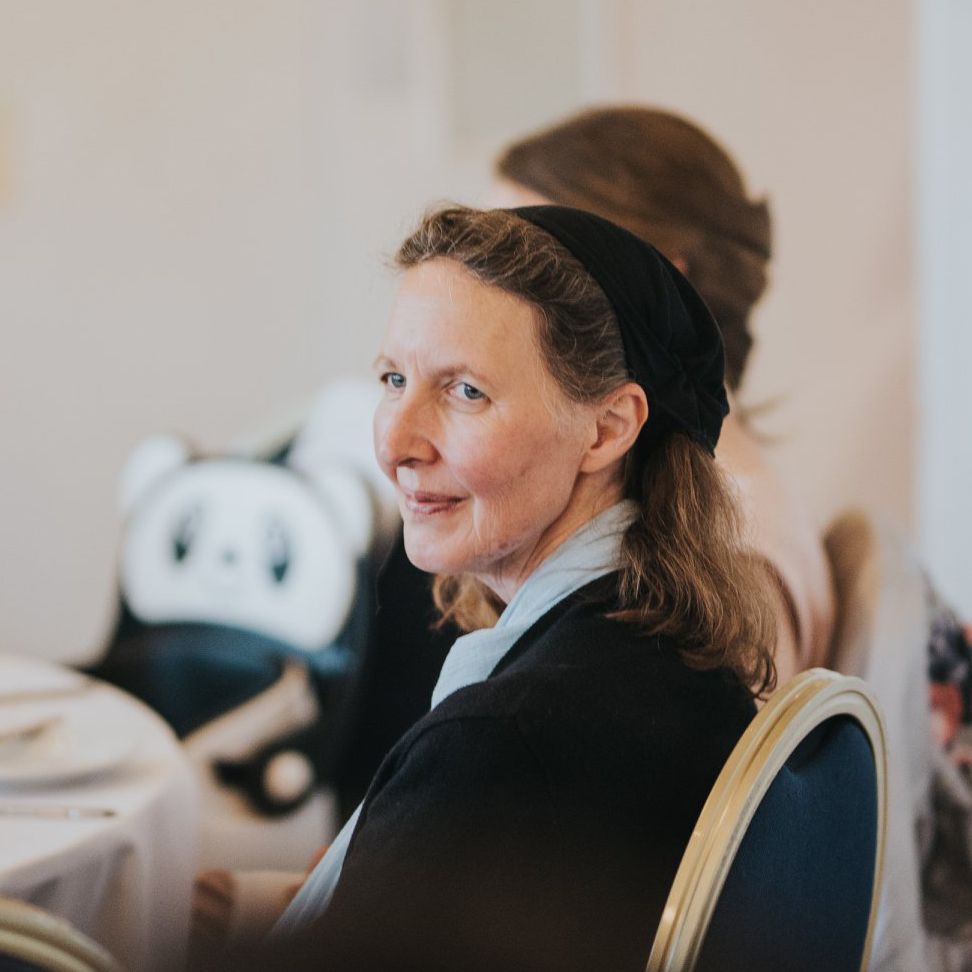30th June - Third Letter to Poppy
Secret diary: Wed 16 M E to house near Ballywayhill. 2 bombs, rifles, 1 car. Fog. Calf. Base way Father MaCarthey daylight.
Official diary (30th June): A man on a motor cycle and a girl in a side car met with an accident, the man was killed and the girl injured within a mile of the spot where I was.This place is on the general line Abbeyfeale-Limerick Railway. There is a small post Office there, and no village but merely some scattered houses along the road. At this place a fairly new and small cottage is used by the I.R.A. as a hospital and I saw two or three wounded rebels there. I was taken into a very small farm about half a mile North of the Railway line. The Railway line turns South West of this place, which is probably between ABBEYFEALE and NEWCASTLE. I moved during the night to BALLYHAHILL and stopped for two or three hours in Father McCarthy’s house which was unoccupied at the time and while here another house was being prepared for my reception.
Location: Few hours at McCarthy’s Ballyhahill - then moved to Dores' Balliston House near Ardagh (stayed here for 2 days)
Monday,
My darling Pip,
You will have been settled in the home some days by the time you get this, hope they are making you comfortable and you have lots of people to see you.
Am really seeing Ireland properly just now, the people are very kind, lots of good plain food. It is all very interesting. Have not heard how Col Danford is getting on the last 2 days, but hope he is pulling round all right now. My car has been damaged, how badly I don’t know yet; they took me away in it and ran it into the bank when we tried to get away. I wish it was smashed up altogether then we could start again with a new one.
Am short of clean clothes but will be able to buy some of the necessities shortly, have already procured washing kit so am fairly clean in spite of the ragged appearance of my fishing clothes.
I am in no danger at all, and you will be quite tickled with my experiences when I get out. I am certain to be able to get leave at once, and expect to find you and the heir in the best of form. I hope I shant be here very long; I think the idea is to exchange me for Sinn Fein prisoners.
Lots and lots of love, keep smiling.
your C
Third and fourth letters sent to Mrs C.H. Tindall Lucas, No.1 Cleveland Gardens, Hyde Park London W.2. These were kept together in an envelope postmarked Dublin Jul 3 10pm 1920. (The fourth letter that Poppy received is actually the third letter CHTL wrote to her. Each envelope had a pencilled ‘No…’ recording the order in which she received them.)

CHTL appeared to be beginning to enjoy his little adventure: it is quite extraordinary that he was so cheerful! Maybe charging along Irish lanes at high speeds was reminiscent of his 'joy-rides' behind the lines when he was out with his pals, letting off steam and escaping from the horror of the war in France. The camaraderie which united the Volunteers wouldn't have been lost on CHTL, he'd have recognised the strength that gave the soldier - the warm feeling that they were 'in it together' and that their brotherly ties would see them through. This was how Volunteer Seán Healy described it:
Having been brought together under such thrilling circumstances, a fast and endurable friendship was at once formed between us. We placed full confidence and trust in each other and were prepared to die for each other if necessary We seemed to be of the same dare-devil character and were tuned up to meet any emergency that might arise. We were very light hearted light hearted and all single men with no cares or worries.
BUREAU OF MILITARY HISTORY, 1913-21 STATEMENT BY WITNESS. DOCUMENT NO. W.S.1479 Witness Seán Healy, Captain, A. Company, 1st Battalion, Cork I. Brigade.
Interestingly CHTL noted in his secret diary that 'IRA unmarried’.
Travelling long distances beat being cooped up in another farmhouse and CHTL would have thrived on the thrill of it: his mathematical brain rapidly calculating directions and distances, noting landmarks and sign posts, and taking in the wounded fighters in the hospital.
His sharp ears also picked up on the stories told: he was moved by the tragic death of a young man and the near death of the girl on the back of the motorcycle; but this was also an important clue to his whereabouts as the tragedy would be well-known in the area and the death would have to be official recorded.
Accident on the bridge
The man mentioned in the report as having been killed was Maurice Neligan, a 26 year old Trade Union organiser, an IRA member and a friend of Michael Collins (who was Director of Intelligence for the IRA at the time). He was killed at Goulborne Bridge between Abbeyfeale and Templeglantine when he hit the bridge with his motorcycle. His sister, who was a pillion passenger, was thrown over the bridge but she survived.
His younger brother was David Neligan who wrote 'Spy in the Castle' about his time working in the Dublin Metropolitan Police whilst spying for the IRA. David wrote about his brother's death:
Maurice left home one evening to go to a religious Mission in Abbeyfeale. He rode a motor-cycle, and my sister Eileen was on the pillion. Fifteen minutes after they left, I heard a motor-car and a neighbour beckoned to me. It was MI O'Mahony, the manager of our creamery. He told me that there had been an accident and he was coming for the Priest. We went to the scene. The front wheel of the machine had hit a stone of the bridge over a river at a bend, and a sliver of stone had penetrated Maurice's skull. He was thrown on the road, breathing with a loud snoring sound. I knew enough of first-aid to tell he was mortally injured.
Eileen had been flung over the balustrade of the bridge into the river far below. One of her shoes was caught between two stones on top of the bridge and helped break her fall, but she like Maurice in deep coma. Two doctors attended but there was little they could do. He was brought into Colbert's house nearby and neighbours prayed all night. Just as dawn brightened the sky he breathed his last.
The memory of that terrible day will remain with me to my last breath, ...So full of life, so gay was he, in the prime of a life which gave great promise; suddenly he was snatched away from those he loved and who loved him. My Father was a broken man; my Mother, with her surpassing faith, accepted the blow, as she did many others, as God's Holy Will. My sister Joan, for whom Maurice had great affection, was wild with grief. Eileen was seriously ill for weeks but slowly recovered, though she bore the marks of her injuries for the rest of her life.
Before they left the house on that fatal day, Joan told Maurice that she had dreamt that he'd been in an accident. He laughed and told her not to be afraid.
p70 The Spy in the Castle David Neligan Prendeville Publishing Limited ISBN: 0 9535697 0 5
The date given for Maurice Neligan's death was Wednesday 30th June 1920, which ties in exactly with what CHTL had recorded. It is very likely that many of those guarding CHTL knew Maurice Neligan and his family and they must have been very troubled by his tragic death.
Winning a smile
There were many lighter sides to his days and in typical CHTL fashion he found the funny side of his incarceration: "you will be quite tickled with my experiences when I get out." He would eat out on the entertainment value of his stories for sometime after his escape.
The Lucas gene of making the best of a bad situation kicked in to action: winning 'a smile from sorrow'.
It is known that it wasn't just male IRA supporters who were involved in looking after CHTL there were also the ladies of the houses that he was 'billeted' in who were roped into looking after this unusual 'guest'. Stories handed down the generations in Ireland recall that some very formidable Irish matriarchs came across the general and who no doubt rivalled any of his indomitable sisters in steel and organisational skills; as well as standing no nonsense from who ever their guests were - gold braided or not!
The diplomacy CHTL had learnt in dealing with his feisty sisters and the more challenging of his continental hostesses that he'd encountered in previous 'billets' during WW1, had prepared him well.
There was no doubt that his captors were being 'very kind'. The old Lucas charm would have been in full use, CHTL knew how to tease and flatter ladies from the Emerald isle: he'd had lots of practise with Poppy's dear old Nurse O'Neill. People respond to genuine gratitude and praise and CHTL's good manners would have inspired those he had contact with to go that extra mile to please him. Kindness breeds kindness. These formidable ladies no doubt wielded a certain amount of influence over their men and their regard for the gentlemanly general would have carried some weight. CHTL knew all about the power of 'petticoat influence’ from his sisters. It was perhaps the kindness that helped generate an incredible certainty in CHTL that he was not in any great danger. He was very relaxed for a prisoner held by those on the other side of a bitter conflict.
Prisoner exchange
Vice- Commandant of the East Limerick Brigade, Tomas O Maeoilan, in his Bureau of Military History Witness Statement, wrote about the idea of CHTL being exchanged for IRA prisoners:
At the time there was a suggestion that the British might exchange a prisoner for Lucas. Bob Barton was a prisoner in British hands at the time and it was hoped he might be exchanged for Lucas, but the latter scoffed at the notion. He said he was not as valuable in British eyes as we seemed to think.
BUREAU OF MILITARY HISTORY, 1913-21. STATEMENT BY WITNESS DOCUMENT NO W.S. 845 Witness Tomas 0 Maoileoin, Identity.Vice-Comd't. East Limerick Brigade
CHTL was a realist, he knew that the British were not going to sacrifice military advantage for his life. The Great War had proved that lives were expendable for the sake of victory at any cost. Sherwood Kelly had hi-lighted the fact again in regards to the Russian Front. Losing a general was worth the cost of keeping the upper hand in the battle against the Irish rebels. To start to bargain with criminals was beneath the dignity of Whitehall and the last thing they wanted to appear was weak.
Robert Childers Barton (4 March 1881 – 10 August 1975) was an officer in the Royal Dublin Fusiliers. From a wealthy Irish Protestant family, he had been educated in England at Rugby and Oxford. He was stationed in Dublin during the 1916 Easter Rising and came across many of the captured Republican leaders. In Michael Collin's eyes 'he had distinguished himself by his kindness to the prisoners and their relatives'. He resigned his commission in protest at the British heavy-handed tactics and promptly joined the rebels. Barton was another man noted to be a 'gentleman', as someone who showed kindness and who had a sense of humour. It is possible that CHTL and he may have come across each other as an RDF battn was part of 86th Brigade in 29th Division. Barton lost one brother at the Somme and another during 1918 in France .
In 1918 Barton was elected as the Sinn Féin member for West Wicklow but along with all Sinn Féin members, he boycotted the Westminster parliament and instead sat in Dáil Éireann (the "First Dáil"). He was arrested in February 1919 for sedition, escaping from Mountjoy Prison on St. Patrick's Day, thanks to a group of Volunteers, who smuggled in a file and threw a rope ladder over the 20ft (6m) prison wall. In heroic Scarlett Pimpernel style, Barton left a dummy in his bed and a note to the governor explaining that, 'owing to the discomfort of his cell, the occupant felt compelled to leave, and requesting the governor to keep his luggage until he sent for it'. He was recaptured in January 1920 and sentenced to three years' imprisonment.
Fortunately Barton's life wasn't in danger; although he, unlike CHTL, did experience 'considerable brutality' during his time as a prisoner whilst in jail. Not being exchanged for CHTL meant that he had to spend another year in prison until July 1921 when he was released under a general amnesty. He was one of the signatories of the Anglo-Irish Treaty, but after being defeated in the 1923 election he resigned from politics and took up law as a career, eventually becoming a judge.
(Barton, Robert Childers by Pauric J. Dempsey and Shaun Boylan, Source)
(BUREAU OF MILITARY HISTORY, 1913-21.STATEMENT BY WITNESS. DOCUMENT NO. W.S. 936 Witness Miss Dulcibella Barton, Sister of Robert Barton, signatory of the Anglo-Irish Treaty of 6th December, 1921.)
On 30th June General Macready proposed arresting six leading local IRA men, and holding them until Lucas was released. Sir Henry Wilson agreed: "arrest Sinn Feiners and deal with them as prisoners of war – the Sinn Fein Organization being as much an enemy to England as were the Boches". (Macready to Wilson, 30 June 1920 (Wilson papers, HHW 22A/33))
However this was not followed through: Lucas was to stay as the only 'prisoner of war'. Perhaps to have gone along with Macready's plan would have given the impression that this was a 'war' and not the criminal unrest that the British wanted to portray it as.
In the papers of the day it was being reported that Sinn Fein were not feeling that 'kind' towards their hostage, in fact the tone was quite threatening according to the Geneva Daily Times:
Sinn Fein Commandant Threatens General Lucas
Cork, June 30 – The Sinn Fein commandant has warned Brigadier General C.H.T. Lucas, who is a prisoner in Sinn Fein hands, that unless the police and soldiers stop wrecking towns in south Ireland, Lucas himself will be held responsible and reprisals will be taken against him and any other British officers who are captured, it was learned today.
Sinn Fein officials declared that civilians must not be molested by the British police and military.
It is reported from Fermoy, Lismore and Bantry that many women and children are fleeing from these places, fearing violence on the part of the British soldiers.
These kinds of reports must have caused great anxiety to the Lucas family back in Welwyn and one can appreciate their concerns in trying to shield Poppy from this. It must have been confusing receiving CHTL's positive reports and then reading Sinn Fein's threats.
Back in London there were memos being written by Churchill to General Macready about a letter that had been received from the captured general:
From:- Secretary of State.
To:- General Macready, Dublin.
Despatched:- 15.00 30.6.20.
Secret and Personal
I do not consider that letters probably written under duress by an officer in captivity should afford any reason for delaying the proper measures for informing the law and searching for criminals. Only yesterday Chief Secretary explained to Cabinet Committee the importance he attached to this drive. I think it right to let you know also that Cabinet Committee took a very unfavourable view of the carelessness shown by General Lucas in letting himself be kidnapped, and on his release this aspect must receive attention. Chief Secretary is telegraphing to you direct.
There was a ‘drive’ planned which CHTL had alluded to in his letter to Poppy pre-capture. Churchill and others in the government were convinced that the way to solve the Irish problem was “to take every possible measure to break the murder campaign and to enforce the authority of the law” (The Murder Campaign in Ireland,June 13th 1920 Churchill Archives). This would involve the military scouring the countryside with force to find and ‘deal with’ those involved in a “a campaign of assassination”. Interestingly this ‘drive’ never materialised, perhaps held up by the manpower used to search for the missing general. The capture of CHTL had hidden benefits and possibly saved lives.
Father McCarthy
Father Edmund Richard (Dick) McCarthy was the curate at Ballyhahill. He was known for his support for the IRA and was forced to leave Ireland in early 1921 as he was on the Black and Tan's wanted list. He returned at the end of the year and eventually became Chaplain to the Free State Army (1922 -1933). He and his housekeeper, Molly Cregan, had nursed injured IRA fugitives back to health. (p205 The War of Independence in Limerick 1912 - 1921, Thomas Toomey)
The Volunteers knew that he would willing lend his home to aid and abet them. The fact that he wasn't there when CHTL and his minders called in for a few hours meant that nothing incriminating would stick later on.
Cutlett's sudden arrival
Of course for CHTL, the most momentous event that happened on this day was the sudden birth of Arthur William Tindall Lucas, following his mother's discovery of his father's kidnapping.
Once her in-laws had Poppy safely out of the way in the London nursing home, the family thought that Poppy would be protected from any worry. However that was not to be the case. The story told to Poppy’s sons was that she was feeling sick one morning and called the duty nurse. Beneath the bowl the nurse rushed in with, was a sheet of newspaper to catch any accidental spillage. The newspaper would have been an old one put aside for such occurrences. There was the startling headline in bold print:
‘General Lucas kidnapped’ (or words to that effect!).
Poor Poppy must have felt her world crashing down around her. All the subterfuge of the last few days must have suddenly made sense, but her anxiety was made worse by the fact that this was old news. What had happened to CHTL since – had he been killed? The shock of her discovery sent her into labour and ‘Cutlett’ came into the world earlier than expected on the 30th June 1920:
You only just got up to town in time. It was a pity in some ways the family did not tell you at once about me, but it was just as well to get you up to town first as otherwise things might have been very serious. It was a great blessing you had no complications or trouble and everything went off smoothly.
Letter from CHTL, 15th July 1920
It would be a few more days before CHTL would know of his son's premature arrival.

As young Bill arrived, Maurice Neligan departed. Both journeys were sudden, unexpected and traumatic, but one son's gave his mother hope for the future whilst the other left a dark shadow on his mother's heart.

